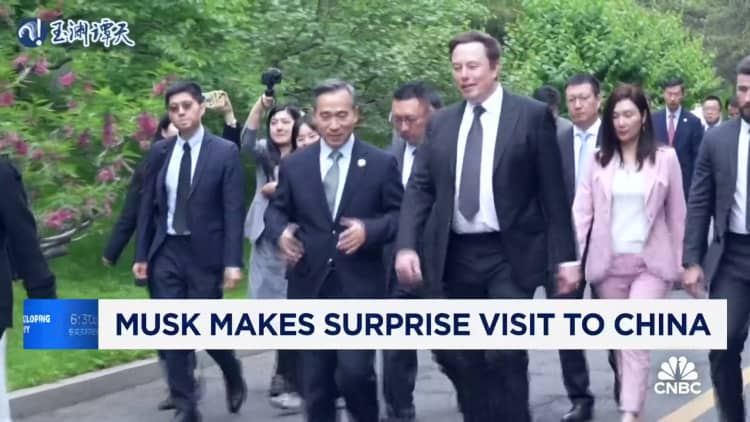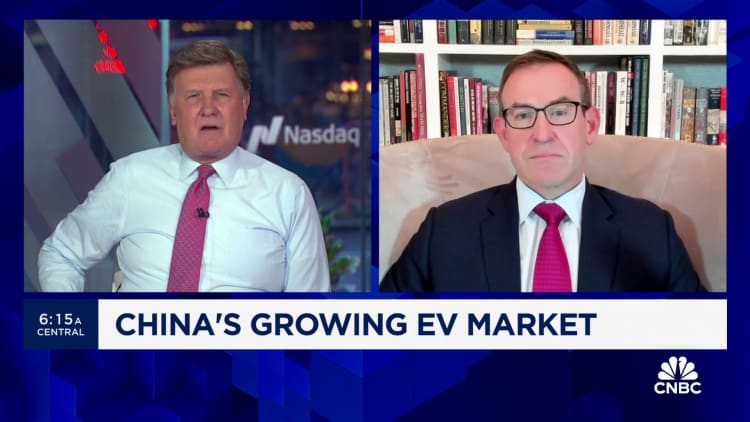
Shares of Tesla rose sharply on Monday, their best day since March 2021, after the electric carmaker passed a significant milestone to roll out its advanced driver-assistance technology in China.
The company’s share price closed up 15% as investors reacted to news surrounding Tesla CEO Elon Musk’s visit to China.
Tesla on Sunday said local Chinese authorities removed restrictions on its cars after passing the country’s data security requirements.
The move raised expectations that Tesla’s driver-assistance software Full Self-Driving, or FSD, would soon be available in the country, which is the largest market for electric vehicles.
While Tesla’s electric cars are some of the most popular vehicles in China, they have reportedly been banned from some government-related properties due to data security concerns.
Separately, the Biden administration earlier this year announced a probe into whether imported cars from China pose national security risks due to their ability to potentially collect sensitive data.
FSD is an upgrade to Tesla’s Autopilot driver assistant. Tesla has offered its FSD technology in China for years, but with a restricted feature set that limits it to operations, such as automated lane changing.
Tesla does not yet make or sell cars capable of full autonomous driving. It sells “Level 2” driver-assistance systems, marketed under the brand name FSD.
Musk’s company has been sued in the U.S. by the California Department of Motor Vehicles for false advertising with its Autopilot and Full Self-Driving driver-assistance systems.
Tesla responded that the DMV had been aware of its use of these brand names for years and chose not to take action. The firm believes Californian law on advertising of autonomous driving systems violates free speech.
Overcoming major hurdles in China
Data security concerns have been a key obstacle preventing Tesla from achieving a full rollout of the system in China.
Tesla also reportedly scored a deal with Baidu that would give Musk’s firm access to the Chinese internet giant’s mapping and navigation technology for Tesla’s FSD feature.
The agreement would allow Tesla to tap into Baidu’s mapping service license, which is a requirement for intelligence driving systems to operate on public roads in China, Reuters reported, citing two anonymous sources familiar with the matter.
CNBC was unable to independently verify the report. Tesla and Baidu were not immediately available for comment.

With the license, which foreign companies can only clinch in partnership with local Chinese firms, Tesla will be allowed to legally operate FSD on Chinese roads, and its fleets will be able to gather data about traffic, road signs and routes.
The breakthrough for Tesla toward bringing its FSD technology to China marks a key win for the firm at a time when it is facing hefty competition in the Chinese market. Local rivals such as Warren Buffett-backed electric vehicle maker BYD, Nio and XPeng have ramped up their competition with Tesla in recent years.
BYD was temporarily the largest electric vehicle maker globally, producing more than three million new energy vehicles in 2023. The firm recently lost its crown as the world’s largest EV maker, after a 43% plunge in sales in the first quarter.
— CNBC’s Evelyn Cheng contributed to this report.
Clarification: The text of this story has been amended to clarify that Tesla cleared a milestone to roll out “Full Self Driving,” which is the brand name for its driver-assistance technology, in China.
